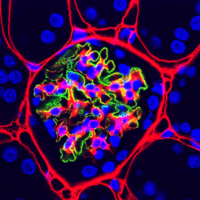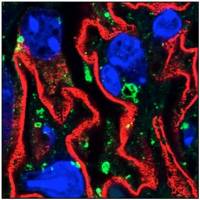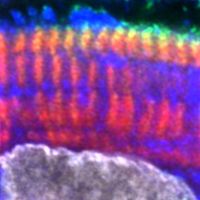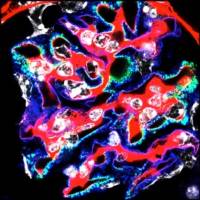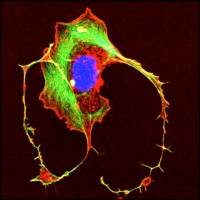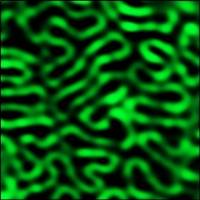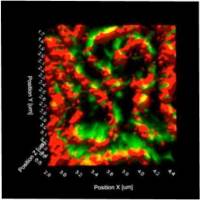Protein homeostasis
Glomerulonephritis
We are studying the mechanisms of glomerular cell injury and recovery with the ultimate goal to understand the disease pathways accounting for resident glomerular cell injury and disease progression.
Renal cell (patho)physiology
Our team is investigating the glomerular cell-type specific dependence on the different protein degradation systems and their function in cell physiology and pathophysiology.
Lysosomal storage disease
Lysosomal storage diseases are rare and result from dysfunctional lysosomal degradation. We study the impact of lysosomal dysfunction on renal cells with focus on the compensatory mechanisms activated that preclude impairment.
Autoimmunity
Our research group is examining the impact of proteasomal degradation for the development of autoimmunity and in the orchestration of an immune reaction.
Neurodegeneration
Neurodegeneration can be related to a dysfunction of degradatory enzymes, which are found to be mutated in a subset of patients. We aim to unravel and subsequently target the perturbed pathways with the goal to attenuate and delay neurodegeneration.
Cardiac muscle atrophy and degradation systems
The aim of this project is to characterize the involvement of degradation systems in the cardiac muscle atrophy secondary to cardiac unloading. The main focus in on the regulation of the ubiquitin proteasomal system, especially on changes in proteasomal subunit constitution and activity.
Special expertise
In vivo studies and translation
We utilize rodent models of glomerulonephritis to investigate and therapeutically target new disease pathways and validate these findings in human tissue biopsies, serum and urine.
Primary cell / organ culture modeling
We investigate new renal primary cell lines and use cell and organ culture systems to model and biochemically unravel disease pathways.
Renal cell isolation
We establish techniques to specifically isolate naïve renal cell types for state of the art unbiased and biased biochemical investigations.
High resolution confocal microscopy
We are performing state of the art immunofluorescence-based imaging techniques to measure pathway activities and protein co-localizations at the subcellular level.
2D/3D STED
We carry out STED microscopy for high-end spatial resolution and localization studies at the nanometer level.
